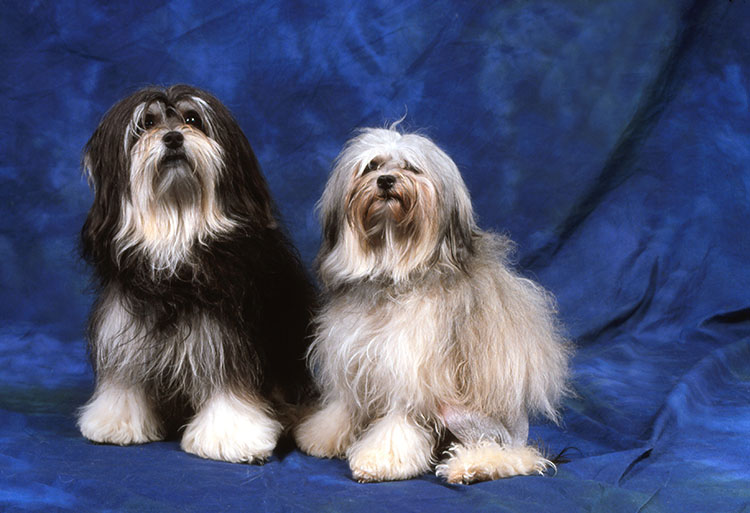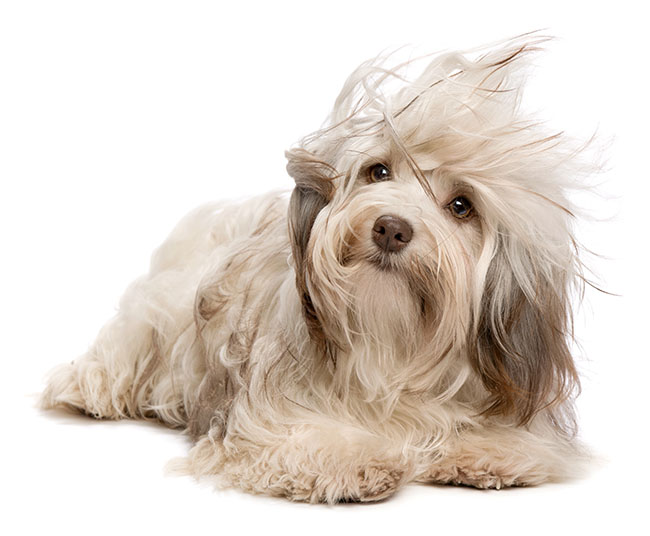Temperament and Behaviour of the Bichons
Bichons are bred to be small, charming companion dogs with even temperaments and a playful easygoing nature. They are usually joyful little characters with a playful nature and will always be looking for something to do around the house. They pick up new tricks very quickly and enjoy the home comforts afforded to them as lap dogs, but like all dogs they also need daily exercise. They are good with children while maintaining alert watchdog abilities. A playful temperament is judged to be particularly important to Bichons. They need consistent but fair reward based training, as some Bichons can be headstrong. Bichons love to be part of the family and to participate in all family activities. Properly bred, Bichons should not be yappy, stand-offish, nervous or aggressive.
If you wish to own a Bichon, you should thoroughly research the temperament and behaviour of all Seven Bichon Breeds to determine which breed blends in best with your life style. Though all seven Bichons are adorable, you should note that their appearance does not always make them compatible with the personalities in your household. For example, the Bichon Frisé has several wonderful qualities. They are affectionate, sensitive, and very gentle, what other qualities would you want from a canine friend?

Fear Aggression
This problem is part of a larger complex issue of the Bichons and is otherwise known as Small Dog Syndrome. Since the Bichons know they are small dogs, they are often threatened and overreact to make up for their small physique. They display an aggressive retort by growling, barking or simply biting their tormentor; this defensive behaviour is intended to mask their feeling of inadequacy.
As a Bichon owner, you should never entertain any aggressive behaviour. Train and raise your Bichon with much love and attention whist ensuring that he is in no doubt that your are the leader of the pack. To do this effectively, you need to be strong, assertive and above all consistent in your training.
Establish the ground rules at the start of the training. These rules will determine the behavioural outcome. The training delivery should be assertive, but without being mean to the dog. Scold (don’t shout) when he behaves badly and lavish praise when he behaves within the ground rules and a superb temperament will develop over time.

Separation Anxiety
On the whole, the Bichons temperament is mostly positive, playful and sensitive. However, Bichons can suffer “Separation Anxiety”. Bichons are social animals that demand attention from their owners. If you travel a lot or intend leaving your dog alone for prolonged periods of time, then a Bichon is not for you because he will be placed at risk of developing separation anxiety, which could eventually result in a depressed dog. Bichons are excellent pets for those people who spend time at home. If you are able spend time and lavish affection then you are sure of getting an affectionate, happy and gentle dog that you will be proud to call your very own.

The Bichon Buz
Bichons buzz around with energy and this act is often called the ‘Bichon Buzz’ or the ‘Bichon Blitz’. When a Bichon begins to buzz or blitz in the home, he will go from one room to the next, jumping on and off couches, beds, love seats, or chairs. As a result, the event can be quite entertaining. However, after the Bichon has spent its energy, it will lie down and collapse from exhaustion.
